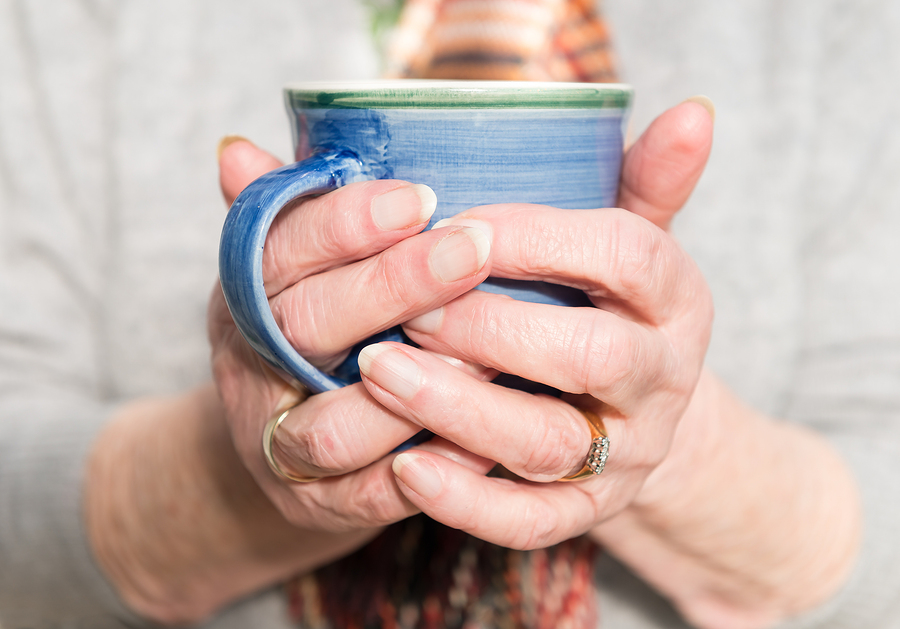Do you suffer with cold hands and feet?
Ever wondered why some of us are more prone to cold hands and feet than others? Here we take a look at some of the reasons why we feel the cold, particularly as we age.
Our bodies do an excellent job of regulating our temperature and when the weather turns chilly it ensures blood is kept flowing to our core. In this way, vital organs such as our heart, liver and kidneys are kept warm so we can continue functioning and in effect stay alive. But when it’s cold outside blood vessels in our hands and feet constrict to prevent heat loss from our core making our hands and feet feel cold.
As we age
Our metabolism slows as we age which may lead to a decrease in energy levels and low energy can make us feel cold. Being less active and eating a poor diet can make us lose weight and without adequate fat reserves again we will feel colder. Keeping active as we get older will elevate our metabolism which will keep us feeling warmer for longer.
Circulation can also be affected by peripheral arterial disease (PAD) which is when an accumulation of fatty deposits in the arteries restricts blood supply, particularly to leg muscles. PAD affects circulation which in turn can lead to cold hands and feet.
So it is certainly more difficult for older people to feel warm, we lose heat faster than when we were young, we have slower metabolisms and our bodies don’t produce enough heat, we are also prone to poor circulation which can lead our extremities feeling cold.
It is therefore vitally important to know how to keep warm, both indoors and outside as we age.
Dress appropriately
It’s common sense but dressing appropriately for the weather is the key. Wearing layers in colder weather is better than just wearing one large jumper for example. Layering clothes trap warm air and so is a much more efficient way of keeping warm. Heat pads or warm wheat bags are also great ways of keeping cold at bay.
Medical conditions
Medical conditions such as low blood pressure, diabetes, anaemia and some forms of thyroid disease may also lead to cold hands and feet.
If you have any of these conditions and are worried, then we advise a visit to your GP who will be able to investigate further.
For some tips on how to eat healthily and exercise more, take a look at our diet and exercise section.
Disclaimer
All content on Silversurfers.com is provided for general information only, and should not be treated at all as a substitute for the medical advice of your own doctor or any other health care professional. Silversurfers will not be responsible or liable for any diagnosis made by a user based on the content on www.silversurfers.com and we are also not liable for the content of any external websites or links from or to Silversurfers to any other websites. Please always consult your own doctor if you’re in any way concerned about any aspect of your health.
Melina - Assistant Editor
Latest posts by Melina - Assistant Editor (see all)
- Banana bread with SunGold kiwis - February 20, 2025
- A tribute to Bob Marley - February 4, 2025
- Going to Work on an Egg! - January 29, 2025
- The Very Best of Petula Clark - January 14, 2025
- 50 Years of Coat Trends - January 12, 2025




















